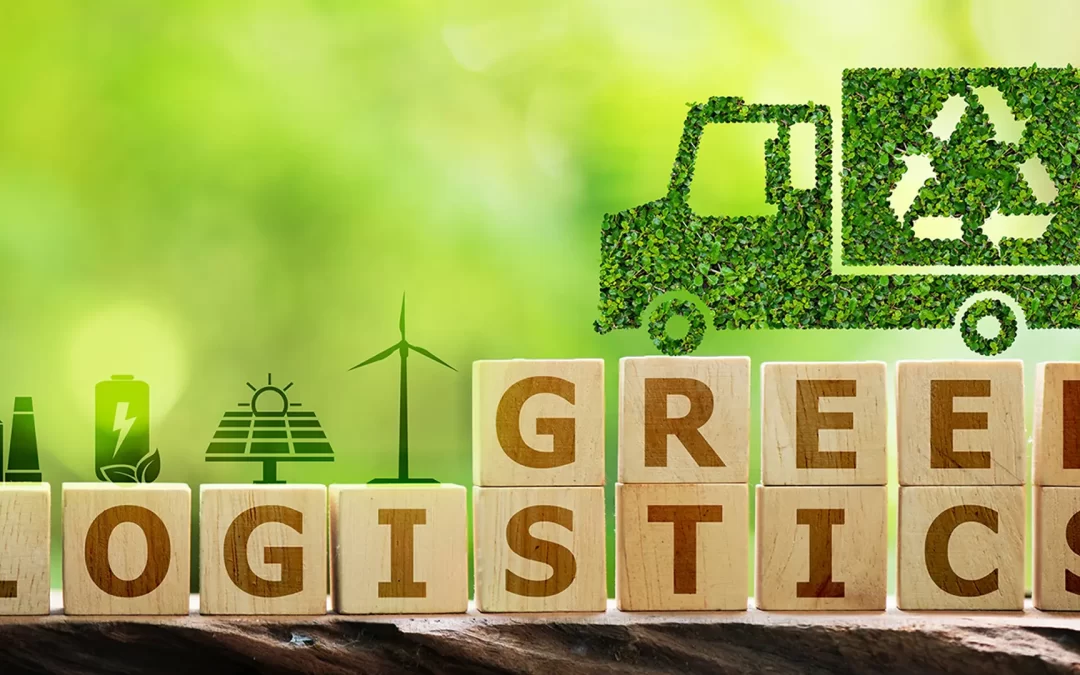The global shipping and logistics industry is the backbone of international trade, facilitating the movement of goods across oceans and continents. However, this vital sector also faces significant challenges related to environmental sustainability. With increasing awareness about climate change and the need for responsible business practices, the industry is under pressure to adopt green initiatives. At the Global Institute of Integral Learning (GIIL), we are committed to educating the next generation of leaders in shipping and logistics on the importance of sustainability and equipping them with the skills to implement green practices.
The Significance of Sustainable Practices in Shipping & Logistics
Shipping and logistics play a crucial role in the global economy, but they also contribute significantly to environmental issues, such as greenhouse gas emissions, marine pollution, and resource consumption. The industry’s impact on the environment has led to a growing demand for more sustainable practices, including:
- Reducing Carbon Footprint: The shipping industry is a major contributor to global CO2 emissions. Implementing energy-efficient technologies, optimizing routes, and using alternative fuels can significantly reduce the carbon footprint of shipping operations.
- Minimizing Waste: Waste management is a critical aspect of sustainability in logistics. By adopting practices such as recycling, reusing materials, and reducing packaging waste, companies can minimize their environmental impact.
- Promoting Green Supply Chains: Green supply chains involve sourcing materials and products from environmentally responsible suppliers, reducing energy consumption throughout the supply chain, and encouraging sustainable practices among partners and stakeholders.
- Conservation of Marine Ecosystems: Shipping activities can negatively affect marine ecosystems through oil spills, ballast water discharge, and underwater noise pollution. Implementing stricter regulations and adopting best practices can help protect these ecosystems.
How GIIL Incorporates Sustainability into Its Shipping & Logistics Programs
At GIIL, we recognize the critical need for sustainable practices in the shipping and logistics industry. Our programs are designed to provide students with a comprehensive understanding of the industry’s environmental challenges and the tools to address them.
1. BBA in Shipping & Logistics
Our BBA in Shipping & Logistics program includes courses on sustainable business practices, environmental regulations, and green logistics. Students learn about energy-efficient technologies, waste management strategies, and the importance of ethical sourcing in the supply chain.
2. B.Com in Shipping & Logistics
The B.Com in Shipping & Logistics program at GIIL covers the economic and environmental aspects of the shipping industry. Students gain insights into sustainable supply chain management, corporate social responsibility, and the role of innovation in reducing environmental impact.
3. MBA in Shipping & Logistics
Our MBA in Shipping & Logistics program is tailored for future leaders who aspire to drive change in the industry. The curriculum emphasizes strategic management, sustainable development, and the implementation of green practices at a corporate level. Students also explore case studies of companies that have successfully integrated sustainability into their operations.
Conclusion
As the shipping and logistics industry evolves to meet the challenges of the 21st century, sustainability has become a crucial focus. By adopting green practices, companies can not only reduce their environmental impact but also improve efficiency and competitiveness. At GIIL, we are dedicated to preparing our students for this dynamic industry by providing them with the knowledge and skills needed to lead sustainable initiatives.
If you’re interested in building a career that makes a difference, explore our programs in shipping and logistics and join us in shaping a greener future.
For more information, visit our course pages:

